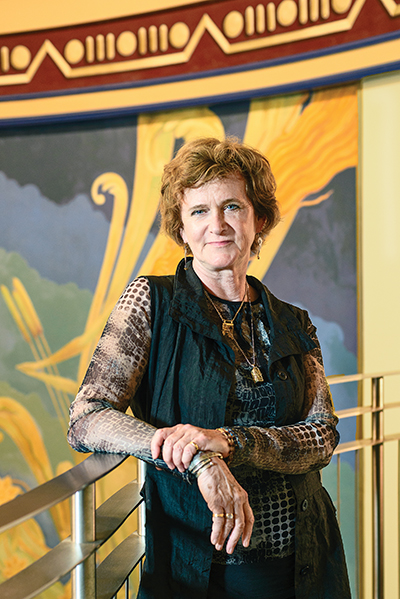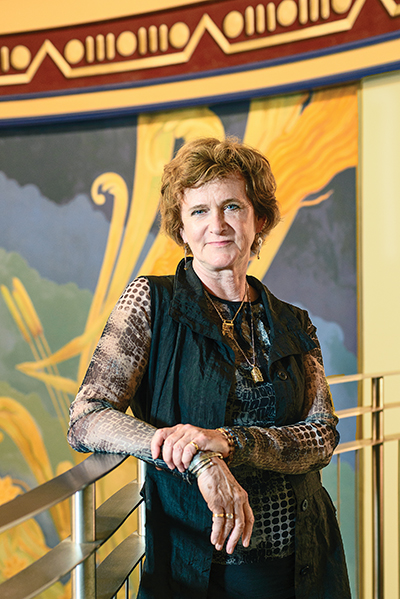
richard wheeler
MILL VALLEY FILM FESTIVAL director of programming Zoë Elton has been with the event since its beginning in 1978. Originally from England, Elton took a year off to visit America, where her goal was to hitchhike from San Francisco to New York. Since her arrival in the United States, she has traveled thousands of miles to film festivals all around the world, including Cannes, Berlin and Venice, in her search for selections to premiere in Mill Valley. She has yet to embark on her hitchhiking adventure.
1. What was your involvement in the Mill Valley Film Festival in the beginning? I was in charge of what became the Videofest. That was in the first year of the festival — it’s amazing to look back at those first three days. You can see the nuggets, the little seeds, that have grown into a much different kind of oak tree at this point.
2. How vital is it to you that the MVFF gets to be the one to premiere a movie? It’s pretty important, as part of our mandate has always been to introduce films to the San Francisco Bay Area. That’s part of our mission. There’s an energy that a film festival can help create for a filmmaker. It’s the energy of connecting with an audience.
3. Are there times in the process where there are surprising highs? Something like that happens every year. Last year was a real standout year for me with 12 Years A Slave. When we see films, it’s before anyone else has seen them. There are no reviews. There is nothing to affect your relationship to it. So when we previewed 12 Years A Slave, I felt it was a game changer.
4. The MVFF is a noncompetitive festival — there are no awards, or winning and losing. What’s the response from filmmakers to that approach? Getting recognition is super-important. We hope that having the Mill Valley stamp of approval helps in recognition. Getting awards is a whole other thing. We are recognizing great work.
5. How does that recognition manifest itself? As soon as we see a film, the conversation begins, and it’s a conversation that continues onstage with the filmmakers. The conversation is the important thing, not the awards. It’s a viral thing, spreading the nature of what the work is about and the passion of the work. The truth of what the work is about — through every person who engages with it.


